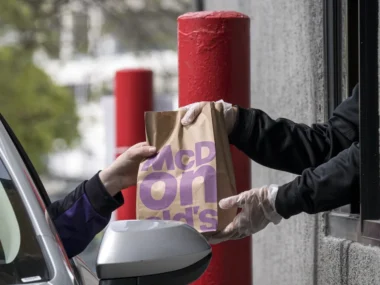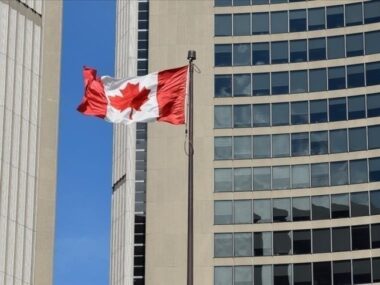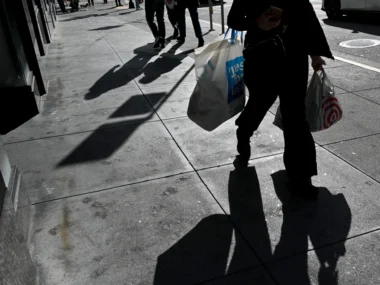After four tough years, Francis Lun, who manages a small brokerage in Hong Kong, is feeling relief from a rising stock market. Since early 2020, the Hang Seng Index, essential to the city’s economy, has faced an unprecedented decline due to economic issues and pandemic restrictions in both Hong Kong and mainland China.
However, in late September, the index’s fortunes changed when China’s leaders introduced several measures to support the struggling economy. As a result, the index surged over 18%, marking its largest two-week increase in nearly two decades. Lun believes the stimulus should have arrived earlier but feels it’s better late than never. “Before the announcement, we were just counting our fingers every day,” he remarked to CNN in his Causeway Bay office, noting the lack of business. “But now, we’re getting calls. Things are picking up.”
While the markets in Hong Kong and China are booming, the sustainability of this rally—and whether the stimulus benefits extend beyond stock investors to the broader economy, which faces potential deflation and may fall short of its 5% growth target—remains uncertain.

Francis Lun serves as the CEO of Geo Securities based in Hong Kong.
So far, the measures introduced have concentrated on monetary policy, which generally involves actions by central banks to affect borrowing costs and manage inflation. Beijing has been relatively cautious about revealing fiscal measures, which can encompass taxation and other strategies to influence public spending.
According to economists at Nikko Asset Management, “the elephant in the room appears to be a lack of consumer confidence.” They suggest that authorities need to implement significant fiscal policies to tackle this confidence crisis, enhance risk appetite, and stimulate economic growth.
Ray Dalio, founder of Bridgewater Associates, the world’s largest hedge fund, stated in a recent social media post that this could be a pivotal moment for China if its leaders take substantial actions beyond the current announcements.
An announcement of a policy package aimed at boosting the economy could happen as soon as Tuesday, during a press briefing by the National Development Reform Commission, the country’s main economic planning agency.
No Need to Speculate.
There is significant discussion among economists about what steps Beijing should take. However, one point is evident: the leadership seems to be taking decisive action after years of inaction.
This assessment comes from the notable joint press conference held on September 24 by People’s Bank of China Governor Pan Gongsheng, National Financial Regulatory Administration Minister Li Yunze, and China Securities Regulatory Commission Chairman Wu Qing, as noted by economists at Nikko.
They observed that in a system where every move is closely watched, the nature of the official announcement was striking. The days of vague statements open to interpretation are over, they noted.
The three officials spoke directly to local and international journalists at the swiftly organized event, signaling a commitment to transparency regarding this significant policy change.
Pan announced a reduction in one of the key interest rates and lowered the cash reserve requirement for banks. He also introduced cuts to existing mortgage rates and reduced the minimum down payment for second-time homebuyers from 25% to 15% to support the struggling property sector, which many economists view as the root of China’s economic challenges.
“This time is different,” stated HSBC economists led by Jing Liu in a recent investor note, highlighting the unusual nature of the press conference. “Everything seems to be happening simultaneously. However, it’s still just the beginning.”
HSBC anticipates that Beijing will announce one trillion yuan (approximately $142 million) in fiscal spending on consumer goods or major construction projects to directly stimulate the economy.
Additionally, another one trillion yuan may be allocated for bank recapitalization or to assist heavily indebted local governments in issuing bonds. While this latter measure may not provide a direct economic boost, it could help mitigate financial risks, according to HSBC.
Invest Heavily, Please.
On September 26, Reuters reported that China intends to issue special sovereign bonds totaling approximately 2 trillion yuan ($284 billion) later this year as part of a new fiscal stimulus package.
The funds raised from these special bonds, issued by the Ministry of Finance, will be allocated to increase subsidies aimed at encouraging consumers to purchase larger or newer appliances, such as washing machines and refrigerators, as well as to upgrade business equipment, according to unnamed sources.
Additionally, part of the funds will provide a monthly allowance of about 800 yuan ($114) per child to all families for each second child and younger siblings.
Some economists believe that the Chinese leadership under Xi Jinping could be more ambitious with their financial strategies.

On September 12, 2024, consumers were seen shopping for home appliances at Suning’s Fangyuanhui store in Renhuai, China.
Jia Kang, the former director of a think tank linked to the Ministry of Finance, stated to The Paper, a state-owned newspaper, last week that the recent intensification of monetary policy was essential and that fiscal policy must align accordingly.
He suggested that Beijing should issue up to 10 trillion yuan ($1.4 trillion) in long-term government bonds to finance infrastructure and public works projects that private companies cannot afford.
Currently the president of the China Academy of New Supply-side Economics, a private think tank, Jia noted that the potential bond issuance of 10 trillion yuan was “not unreasonable,” as China has undertaken similar measures in the past.
In 2008, for instance, the country introduced a four trillion yuan ($570 billion) fiscal package to mitigate the effects of the global financial crisis. Jia explained that China’s economic growth since then could support the issuance of Treasury bonds ranging from four trillion to 10 trillion yuan.
Analysts at Barclays stated that a 10 trillion yuan fiscal package spread over two years could significantly impact the economy, potentially adding one full percentage point to growth, though they emphasized that this plan remains speculative.
Experts also highlighted that any substantial stimulus measures must address the oversupply issue in the property market.
Chi Lo from BNP Paribas Asset Management remarked last week, “The policy shift is serious. It has already triggered a notable rally in Chinese stocks that could continue in the short term. However, a strong belief in a turnaround is still needed to maintain the recovery in the Chinese economy and asset markets.”











